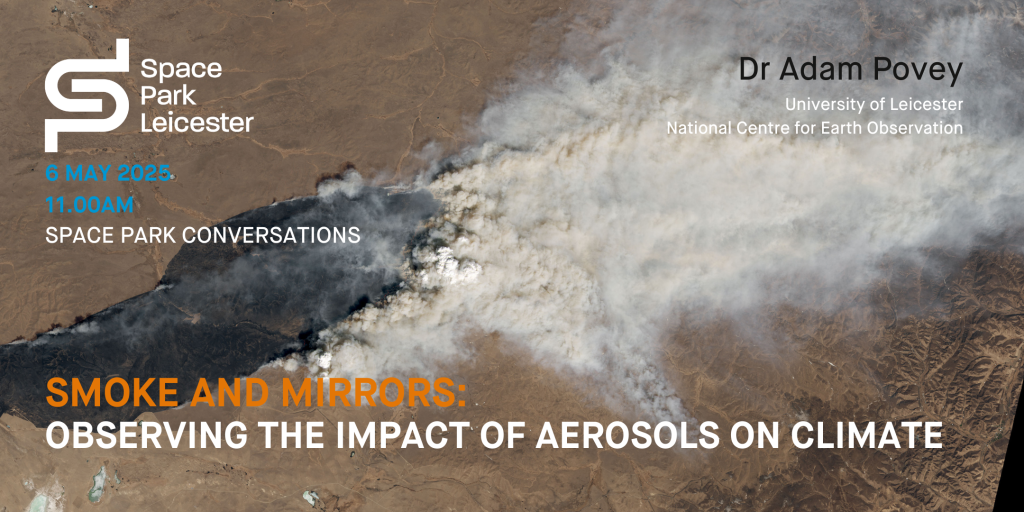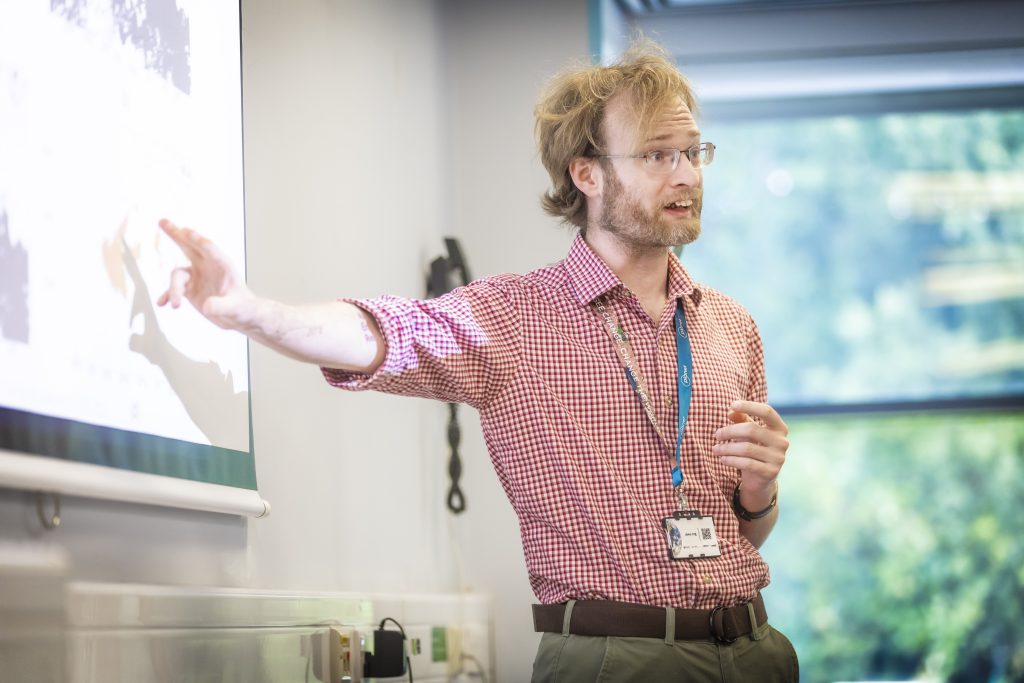Earth observation expert to educate people on the impact of aerosols on the climate

An earth observation expert from the University of Leicester will deliver “a stark illustration of humanity’s unintended influence on climate” at a free talk in Leicester next month.
With over 15 years’ experience in the remote sensing of atmospheric particulates, Dr Adam Povey, an Assistant Professor of Earth Observation at the University of Leicester’s School of Physics and Astronomy, will deliver the latest Space Park Conversations talk ‘Smoke and Mirrors: Observing the impact of aerosols on climate’ at the University of Leicester’s £100 million space research and innovation centre on Tuesday, May 6, 2025.
Dr Povey has published applications of optimal estimation to Light Detection and Ranging (LiDAR) data and is a lead developer of the Optimal Retrieval of Aerosol and Cloud, the Copernicus Climate Change Service’s algorithm for cloud products.
He has led working groups on uncertainty in climate data and has pioneered efforts to improve the representation of uncertainty through clear communication with users. He represents the National Centre for Earth Observation on the UK National Climate Science Partnership’s Climate Interventions Working Group.
Dr Povey said: “Carl Sagan described the Earth as a “pale blue dot” and clouds are what make that dot pale, being responsible for about two-thirds of the planet’s albedo1.
“Aerosols are particles suspended in the atmosphere such as smoke, flecks of salt from sea spray, or droplets of acid condensed from sulphur dioxide. They are the seeds from which most cloud droplets grow.
“The fingerprints of anthropogenic air pollution can be seen in clouds when the addition of particles changes the number of droplets that form – a simple and stark illustration of humanity’s unintended influence on climate.
“These aerosol-cloud interactions have been repeatedly identified as the largest source of uncertainty in anthropogenic climate feedbacks. This presentation will outline how aerosols influence weather and climate, introduce proposals to use those mechanisms to intervene in climate change, and examine how Leicester is contributing to global efforts to better understand this rapidly evolving system.”

Tickets to the free event are available from Space Park Leicester’s Eventbrite page or by clicking this link: https://www.eventbrite.co.uk/e/1307818643769
Main image: The fast-moving blaze charred grassland in eastern Mongolia. Credit: NASA Earth Observatory images by Lauren Dauphin, using Landsat data from the U.S. Geological Survey.


